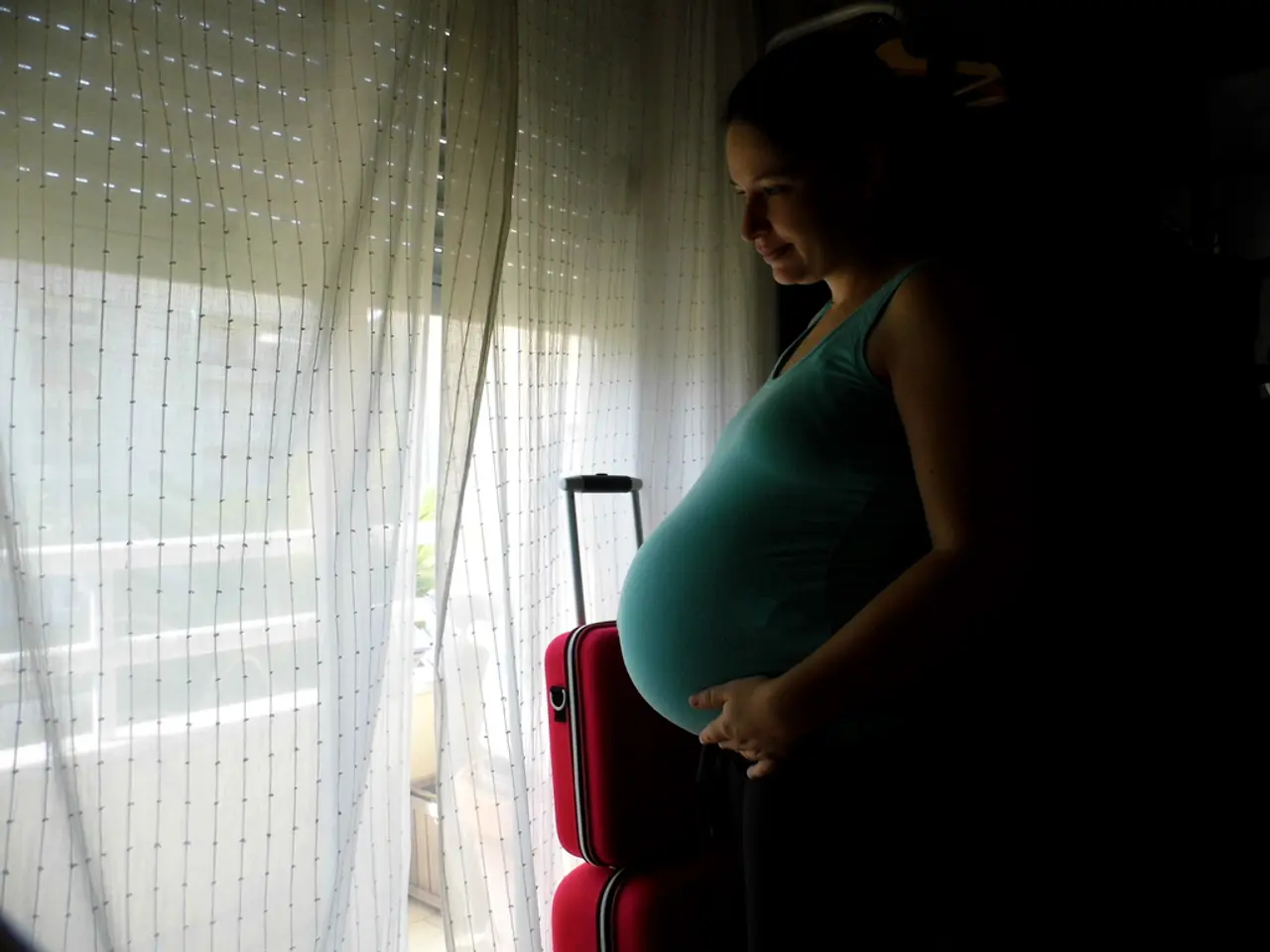Pregnant parents face a call to abandon an 'antiquated' policy regarding childbirth by a concerned mother
In a bid to improve mental health outcomes, support networks, and address pregnancy loss more openly, critics are advocating for the scrapping of the traditional 12-week rule on pregnancy announcements. This rule, often considered a socially accepted time to announce a pregnancy, can delay sharing until after the highest-risk period for pregnancy loss.
Sam Payne, the owner of The Pink Elephants, a support network for miscarriage and early pregnancy loss, is among those who oppose the 12-week rule. She emphasizes the importance of a strong support network, especially in case things don't go as hoped. Payne argues that the 12-week rule reinforces the idea that a baby lost before 12 weeks isn't really a baby.
Early pregnancy announcements can help normalize the anxieties and uncertainties people experience in the first trimester, potentially reducing feelings of isolation or shame related to miscarriage or complications. By encouraging earlier sharing, families and friends could offer support sooner, helping pregnant individuals feel less alone and more supported through prenatal care and early pregnancy challenges.
Since the risk of miscarriage is highest before 12 weeks, waiting to announce can mean people face loss without having shared their news, which may compound grief. Early openness might facilitate better coping and communal support.
Advocates for removing the 12-week announcement guideline argue it would foster more honest, supported pregnancy experiences, better mental health outcomes, and more open conversations about early pregnancy loss and support needs. This would challenge long-standing social taboos and align with shifts toward recognizing early pregnancy as a critical period deserving attention beyond legal or medical milestones.
However, there are concerns surrounding the early announcement of pregnancy. Workplace privacy and discrimination can cause some to delay disclosure, affecting mental health and support access. Hospital maternity service accessibility is declining, increasing burdens on pregnant individuals to seek care and support possibly reinforcing the need for stronger early support networks.
Payne suggests allocating a loved one to communicate with the network in case of loss. She encourages more conversations about pregnancy loss and miscarriage when the person is ready to discuss their experiences. Payne argues that the 12-week rule is medically outdated and not correct health information. She also notes that these complications can persist up until the due date and even after the baby's arrival.
In conclusion, the debate surrounding the 12-week pregnancy announcement rule is complex. While there are valid concerns about workplace privacy and discrimination, the potential benefits of earlier openness in terms of mental health, support networks, and open conversations about pregnancy loss cannot be ignored. For Payne, breaking the silence around pregnancy loss requires creating spaces for open conversations about the topic.
- Sam Payne, an advocate for mental health and wellness, argues that the 12-week rule in pregnancy announcements reinforces a misconception about early pregnancy loss, as it implies that a baby lost before 12 weeks isn't really a baby.
- By encouraging earlier pregnancy announcements, Payne believes that the 12-week rule can be challenged, potentially leading to more open conversations about mental health, early pregnancy loss, and support needs, which are crucial components of overall health and wellness.




